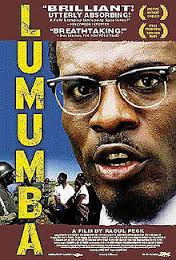 |
| 1990 |
 |
| 2000 |
 |
| 2004 |
Hong Kong director Wong Kar-wai makes films about lonely disconnected characters who populate a dystopia. They long for lost love to the point of seeking to recapture love in a mysterious futuristic world referred to as 2046 in the eponymous film (2004). This also happens to be a hotel room in the film In the Mood for Love (2000) as well as the date at which Hong Kong loses autonomy to mainland China. In these films, the protagonist Chow, narrator, declares in 2046 that "Love is all a matter of timing." In many ways 2046 is a summary of the first (Days of Being Wild, 1990) and second installments of this loose trilogy. The three films take place in 1960, 1962, and 1963-1969 respectively, resulting in a somewhat dated appearance.
Both Maggie Cheung and Tony Leung (cameo in DBW) act in all three films. Asia's answer to Clarke Gable, both Robert de Niro and Brad Pitt consider Leung the finest HK actor of his generation. Cheung has starred in over 70 films. Leung plays Chow Mo-san, novelist in both IML and 2046. Cheung plays Su Li-Zhen, who becomes Chow's love interest in the subsequent films (but only as flashback in 2046).
In the Mood lays down the core theme for the trilogy: in love, timing is everything. The film takes place in Hong Kong, 1962. Chow, a journalist, rents a room (#2046) in an apartment of a building on the same day as Su Li-zhen, a secretary from a shipping company. They become next-door neighbours. Each has a spouse who works and often leaves them alone on overtime shifts. Their lives intersect in everyday situations: a recurring motif in this film is the loneliness of eating alone, and the film documents the leads' chance encounters, each making their individual trek to the street noodle stall.
Chow and Su each nurse suspicions about their own spouse's fidelity; each comes to the conclusion that their spouses have been seeing each other. Chow invites Su to help him write a martial arts serial for the papers. As their relationship develops, their neighbours begin to take notice. The relationship between Chow and Su is platonic, as there is the suggestion that they would be degraded if they stooped to the level of their spouses. As time passes, however, they acknowledge that they have developed feelings for each other.
Chow leaves Hong Kong for a job in Singapore. He asks Su to go with him; Chow waits for her at the hotel room for a time, and then leaves. She can be seen rushing down the stairs of her apartment, only to arrive at the empty hotel room, too late to join Chow. The next year, Su goes to Singapore and visits Chow's apartment where she calls Chow, who is working for a Singaporean newspaper, but she remains silent on the phone when Chow picks up. Later, Chow realises she has visited his apartment after seeing a lipstick-stained cigarette butt in his ashtray.
While dining with a friend, Chow relays a story about how in older times, when a person had a secret that could not be shared, he would instead go atop a mountain, make a hollow in a tree, whisper the secret into that hollow and cover it with mud. The film ends at Siem Reap, Cambodia, where Chow is seen visiting the Angkor Wat. At the site of a ruined monastery, he whispers for some time into a hollow in a ruined wall, before plugging the hollow with mud. This metaphor will open
2046.
2046 follows the aftermath of Chow Mo-wan's unconsummated affair with Su Li-zhen. Chow is a prisoner of his past and seeks a playboy life of noncommitment. The more Chow tries to forget, the more he remembers (in an interview, WKW refers to Roland Barthes'
S/Z (1970) treatise on literary theory in an effort to explain the forgetting/remembering conundrum).
There are four main story arcs to the film, presented piecemeal and not chronologically, reviewed in detail in Wikipedia. Three relate to Chow's relations as a suave ladies' man with Lulu, Wang Jing Wen (the landlord's daughter), Wang Jin Wen (landlord's younger daughter), Bai Ling (high-class prostitute), and a second Su Li-zhen (mysterious gambler). Lulu and Bai Ling are tenants of room 2046 in the Oriental Hotel. The fourth relates to Chow's novel 2046 and concerns a Japanese passenger Tak (Takaya Kimura) falling in love with an android in the world of 2046, where one goes to recapture lost loves. The key role of this strikingly handsome Japanese actor is curious. His character is the only one that has ever returned from 2046.
Wong defines the tenants of Hong Kong cinema: thematic ambiguity, art house aesthetics, keen observation of characters' reaction to rejection, and the rapture of human connection and its consummate tenuousness. Cameron (
Jump Cut) opines that the title refers to Hong Kong's uncertainty and identity. What will be remembered of HK after 2046 ? Tak follows a trajectory of identification that mirrors that of Hong Kong. A pessimistic view of HK's relation with Mainland China may be construed from Chow's failed relations with Mainland women.
The music score was by famed Japanese composer Shigeru Umebayashi. When interviewed he felt that Wong shot the film based on the music score (in distinction to Zhang Yimou who puts the music after the movie has been shot). Other adopted music includes "Casta Diva" from Bellini's
Norma, and Connie Francis' 1960 recording of the classic 1929 Cuban song "Siboney" by Ernesto Lecuona.


























